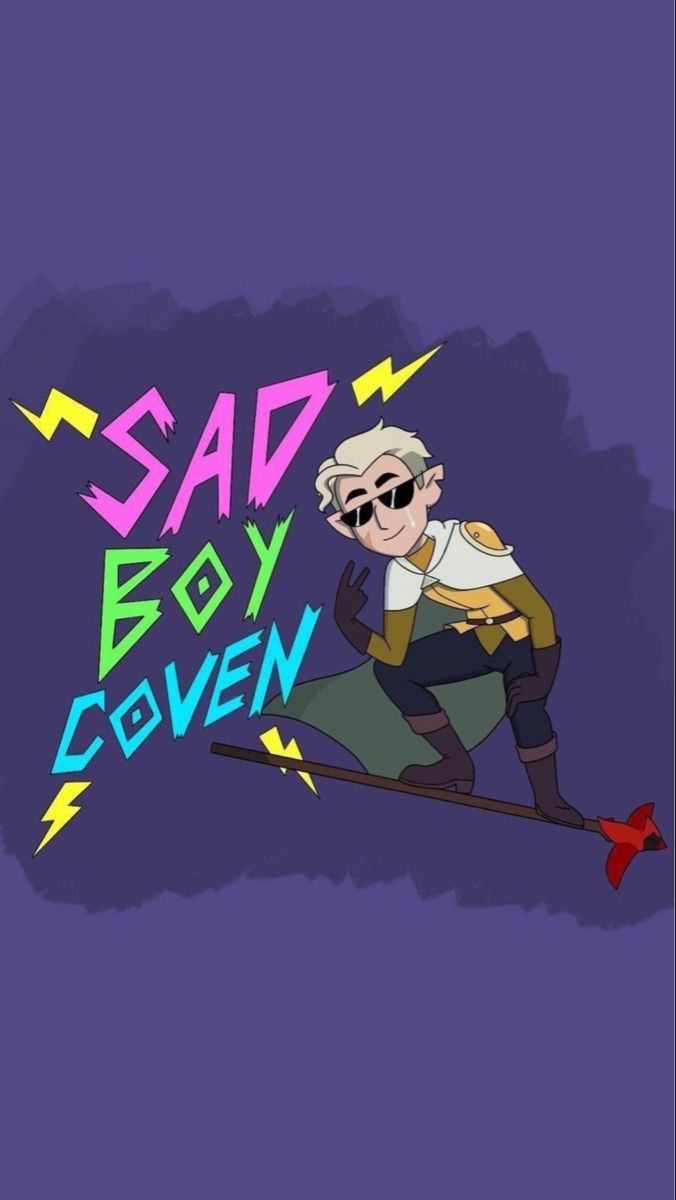Unfortunately the more I read the less this seems like a long overdue accounting of the video game industry’s hubris and the more it seems like someone with looking for someone to blame for their failson. These companies have literally hired psychologists to come up with ways to more effectively manipulate their players into buying their digital bullshit, and surprise surprise many of the things those psychologists have come up with are basically unregulated gambling.
I wonder if this is a false flag?
Well, apparently we can
Well, you can sue someone for anything, you just can’t win for anything. For instance, those developers could countersue because the negligence and bad parenting of those parents materially damaged the reputation of those companies.
Heisenberg approves this.
And now explain to me, what psychological tricks Minecraft uses that make you addicted to it.
One is multiple parallel goals. Makes it hard to stop playing, since there’s always something you just want to finish or do “quickly”.
Say you want to build a house. Chop some trees, make some walls. Oh, need glass for windows. Shovel some sand, make more furnaces, dig a room to put them in - oh, there’s a cave with shiny stuff! Quickly explore a bit. Misstep, fall, zombies, dead. You had not placed a bed yet, so gotta run. Night falls. Dodge spiders and skeletons. Trouble finding new house. There it is! Venture into the cave again to recover your lost equipment. As you come up, a creeper awaitsssss you …
Another mechanism is luck. The world is procedurally generated, and you can craft and create almost anything anywhere. Except for a few things, like spawners. I once was lucky to have two skeleton spawners right next to each other, not far from the surface. In total, I probably spent hours in later worlds to find a similar thing.
The social aspect can also support that you play the game longer or more than you actually would like. Do I lose my “friends” when I stop playing their game?
I don’t think Minecraft does these things in any way maliciously, it’s just a great game. But nevertheless, it has a couple of mechanics which can make it addictive and problematic.
In the case of Minecraft the issues you listed are pretty much present in almost anything entertaining, video games or not, including in-person events and social functions.
As with anything moderation is key and people just need to learn not to let it control them. Some people are incapable of that though.
There are definitely certain things that game companies need to avoid doing but multiple goals, a little bit of luck, and online cooperative play is not it.
The social aspect can also support that you play the game longer or more than you actually would like.
This is the part of any online game I absolutely hate. The feeling of being even slightly beholden to someone else, like now I have to think about them having a good time too.
Games that forbid direct communication, and allow you to drop in and out of a match without hurting others feel a bit better in this respect imho
Isn’t that more of just part of interacting with people, though?
Like, if you play some kind of real-life game with no regard for anyone else, that’s generally considered poor sportsmanship. That wasn’t invented in online gaming, it’s been a concern as long as people have been coming up with games to play together. We accept that if you sit down and play a game of chess or golf or pool or D&D or paintball, you’re going to try to not cheat or blow the game off or be a jerk about it. Some people are better sports than others, but the general idea is that we accept the wins and losses and the game going in different directions, because otherwise there’s no game.
What’s an aberration is this concept that people you meet with over an electronic connection aren’t real, don’t matter, and are never owed anything.
What’s an aberration is this concept that people you meet with over an electronic connection aren’t real, don’t matter, and are never owed anything.
What you said is all true, but what I’m saying is precisely the opposite of this. I don’t like playing certain games with others because I empathise with others and want them to have a good time.
So I usually avoid games (video and otherwise) that are designed so that my continued enthusiastic participation are required for the enjoyment of others. To me, that doesn’t feel like play; it feels like work.
I’ll do it, but it’s exhausting. Maybe it’s an introvert thing, because I’ll come away from those games feeling completely drained.
Note I’m not saying those games are bad, just that i hate them. At least, if my social battery is already used up for the week (which it usually is just from regular life).
Ahh, that makes sense!
At first I thought it had to do with lootbox mechanics and scheduling and reward system gaming, but nope, this one was straight up just “he played vidja too much and I’m afraid of him when I take away his games”
Addictive and entertaining are synonyms now?
Wanna try some super entertaining pills, or would you prefer a syringe so you can pump entertainment straight into your veins? First round is free, don’t you want to be entertained?
Somewhere in here there’s a joke about the cocaine laced with fentanyl that I keep getting told is a massive problem that requires more police funding to deal with.
The feds can’t imprison me for making cocaine “too entertaining”!
I can make you feel entertained, baby!
Something really entertaining can feel addictive just because of that I think
There’s a difference between addictive and entertaining.
I wouldn’t call nicotine entertaining.
Opening lootboxes you paid $5 each for is not entertaining.
Some of these are engineered to be addicting especially loot crates and stuff. A lot of them are just genuinely good.
They mention Minecraft, pretty sure that one was addicting since day 1 and completely unintentionally so. It’s just genuinely fun and you can spend hours in it easily. Same with Factorio.
Not exactly a new phenomenon, I’ve seen my own parents up at 4am just because they wanted to sneak a peek at the new level they reached. My mom had hand drawn and annotated the entire Zelda 1 map. For a little bit, that NES basically ran on a UPS to not lose their progress.
For some reason US parents always want to shift the blame to companies for their own failures. It’s her own damn fault she let this get out of control for 10 fucking years. Just like those that park their kids on an iPad all the time and then sues because their kid spends too much time on the iPad and cry out in the news how iPad babies are so bad. Who’s given them the damn iPad?
What is UPS besides United Postal Service?
My best contextual guess, me having no tech background, is something like Universal Protocol Server? I dunno
UPS is never United Postal Service. You might have meant UPS as United Parcel Service, or you might have mistaken USPS (United States Postal Service).
In this context they are using UPS as Uninterruptable Power Supply.
Ah! Yes thank you for straightening me out on all those details there.
Username suspiciously relevant
Uninterruptible power supply is the common use.
Concerning Minecraft, as I know the game it seems fine, playing Java on a survival server I run for friends.
However, I wonder what the experience is for the other millions of players, on Bedrock, highly popular monetized servers, etc.
What crappy casino-like techniques are used to monetize Minecraft in those contexts? I really don’t know as I’m in my own Minecraft bubble, but I’m sure there are lots of examples as it’s such a monumentally large game.
Hyper monetized minecraft servers can be reeeeeeally bad but i wouldn’t say the offline play is designed to be addicting in the way that most modern AAA games are
Fine tuning a gameplay loop so people keep playing (and maybe spending money) isn’t as far from designing something to be addicting as most people would like to think. Hence why gaming and gambling addiction dovetail so well.
I think there’s a core difference between loot boxes, which is out and out gambling, and gameplay. Both can be addictive, but they have very different consequences.
Gameplay addiction steals your time and maybe your social life, but that’s it.
Gambling addiction also steals your money. And when that’s gone, drives you to extremes trying to find more.
I think you’ve got some valid points but you’re completely ignoring how countless corporations have invested collectively probably trillions of dollars over decades into how to best reach and sink their talons into us.
Minecraft may be an “accidentally addicting” product (though I’d somewhat dispute it), but iPads sure aren’t just addictive by accident. No tablet is. They’re designed to be from the ground up, like every major social media app and then some.
Parents need to parent, but to act like any of us are on an equal footing with the Facebooks of the world is to completely misunderstand the imbalance of power here.
I know a kid that is really into multiplayer Minecraft on Xbox and he is always after his parents for more Xbox cards so he can buy different skins and texture packs. Servers like Cubecraft and The Hive must be making a lot of money.
The thing about older games and Minecraft being addictive is that it’s sort of fine, because they don’t benefit financially from it so obviously it was unintentional and just because of the entertainment.
It becomes a problem with these new games when they are subscription based or have lots of microtransactions because the more addictive the game, the more money the company makes.
This is the same as Trump saying he was just challenging the results of the election.
Namely, nobody is trying to prosecute him for his legal challenges…and nobody is complaining that games are too entertaining. They are bold strawman arguments that most people see through immediately. “Complete bullshit” is now a common argumentative tactic.
This is a pretty complicated topic that touches video games, gambling sites, social media algorithms, and marketing in general. It also touches fundamental philosophical questions like the existence of free will.
We have lots of established law on which sort of “mind tricks” are fair play and which aren’t, but we have not advanced those laws to keep pace with the science. Currently, lying is really the only thing off limits and is covered by fraud statutes. We also have some limits on marketing to children. But one could argue that there are several “persuasion” tactics that can be just as effective as outright lies in manipulating the behavior of others. In fact, licensed therapists are ethically barred from using these tactics, yet we allow salesmen, marketers, etc to use them at will.
I don’t really have an opinion on this lawsuit, nor do I feel qualified to offer a solution. But let me give you an example of how the human mind works which underpins addiction to gambling.
Dopamine is a signaling molecule that regulates a lot of our reward responses. If I find honey in a honeycomb, dopamine gets released and now I am more likely to seek out honeycombs in the future. You can see how this is evolutionarily beneficial. Dopamine release reinforces behavior that increases survival. But let’s say that only about 1/3 of all honeycombs have honey. Now I have a lower chance at a reward, so does that mean the dopamine release is likewise diminished? No, the opposite is true. Dopamine release skyrockets. Evolutionarily this makes sense, we do not want to miss out on a reward simply because the probability is diminished, so the high dopamine release counterbalances the diminished probability such that reward seeking behavior is reinforced so long as the probability of reward is reasonable (it peaks at about 1/4). In fact, dopamine is released even when the honeycomb has no honey. You can draw a direct line between this physical phenomenon and gambling addiction. What people don’t appreciate is that this physiological response is very similar to addictive drugs in effectiveness. It can be hard to acknowledge that one of the reasons you are not a gambling addict is simply that you didn’t start gambling to begin with, not that you are somehow superior to those that are addicted.
We have lots of behavioral quirks like this that can be exploited. At what point does this manipulation cross the line? That is a hard question. For me, gacha games cross that line. But if we want to enact meaningful regulations we need to acknowledge that these mind exploits exist and confront the fact that free will may not be as free as we hope.
Dopamine is a signal substance that is present in several places in the brain, and animals, doing different things in different places. It is not as simple as an exploitable chemical that is enabling this or even involved in the behavioral studies targeted and implemented by gambling companies.
Many things in life is exploitative. The plastic in almost all your utility is designed to break so you have to buy new products. The insurers are purposefully hiding clauses to steal from actual people in distress, at the moment where they lost everything. Oil companies astroturf and lobby to keep the transportation and air quality at this unsustainable level just to make even more money when they already have most of the money in the world, enough to buy whole continents, just lying around in Panama.
Music, film, and other forms of art are the few places where the consumer is more actively engaged and sensitive to being exploited, yet it is also the space where that just doesn’t fly. The gambling area is the most interesting place to view these moral questions in. Why is it okay that their entire business model is to work around regulation as much as possible to reach those most vulnerable in society to take their money?
Games with exploitative practices are going hard out of fashion. The people that engage with those systems unhealthily is the same people that are gambling addicts.
To me it’s just very easy and obviously best to use policy involving support networks and social safety nets to protect people rather than using prohibitive regulation and hope that soulless corporations will ever grow artificial moral spines. These psychopathic global machines will never be human or act human ever
I have obviously simplified the role of dopamine in the brain to make it more digestible, but you are dead wrong about dopamine’s role in intermittent reward and the link to gambling addiction. It has a very strong influence on behavior. Like many aspects of human behavior, the effect is not an on-off switch to enable gambling addiction. We have lots of things going on in our head that are, at times, working against each other as far as behavior is concerned. It is more like an analog adjustment that “pushes” toward a specific behavior much harder than it otherwise would. And this effect is just as powerful as addictive chemicals in potency.
Dopamine levels can measure that effect, it is neither the cause or effect. It is like saying the salt in sea water is the active ingredient making fish live. Only certain fish, only one of the things required, and so on. “it” does not have influence on behaviour, “it” is a chemical used in many different parts of our brain, for instance used to keep us breathing among many other things also in animals and even plants, not affecting their behavior in any way.
Free will is a lie. There, fixed the problem.
Granted, I think we’re all there by now. But how does that solve the problem? The harm is still occurring.
Well I fixed the problem about the doubt whether free will is real or not. The other problems are something other people should fix
I really, really need people to grok the distinction between engagement and entertainment.
Let’s hear it! I think I’ve got it, but would love to hear how you put it
Engagement is merely the ability to, or the degree to which you are able to, maintain interaction with something (a system, a game, a fidget toy, whatever) over time. It has absolutely nothing to do with entertainment, although you can use entertainment as a means of achieving or increasing engagement. However, entertainment is hard. People are entertained by different things to different degrees, and respond to their entertainment in different ways. Engagement on the other hand is a fairly simple behavioural matter and that’s a whole field of science (which is mostly bollocks, to be fair, but its lessons can be very effective when applied at scale).
Source: I used to be a behavioural engineer, specifically a gamification specialist. Engagement was the oil I was employed to extract, and entertainment the excuse my field used to pretend what we were (and still are) doing isn’t just social manipulation at scale.
Yes yes yes, I’m very on board with this. I think we all know what we’re doing is wrong and manipulative on some level, but the general consciousness hasn’t caught up to recognising the tort.
It may be just be association, but I’m not a huge fan of the term “entertainment” either. It strikes the same hollow note for me as “content.”
Yes it’s an apt description for a part of an experience, but it comes so laden with its own associations and preconceptions, that it doesn’t feel useful in most contexts in which it’s deployed.
That said I have no objections to how you’ve used it in your comment.
People don’t drink because vodka tastes good, assholes. “You’re still playing!” is not proof of enjoyment.
deleted by creator
This is really a thing?
Where do I line up to give my victim impact statement on the quality and longevity of games?
deleted by creator
It would help the prosecution’s case if there first was scientific evidence of there being such a thing as gaming addiction
There’s already evidence, and studies showing how u can also develop an addiction (which basically applies to everything and anything).
But-t we aint talking about games in general, we r talking about those games focused solely on lootboxes and “surprise mechanics” as ubisoft likes to call their digital casinos.
Im also a gamer dude, and thats why we need to recognize when theres a problem in the industry instead of trying to ignore it.
I mean, there kinda is. Gambling addiction is a fairly well known phenomenon and while the vast majority of games aren’t purely gambling, many of them do share mechanics with gambling games. One could argue that if a game shares too many mechanics normally seen in gambling and are associated with addiction, then gambling addiction could apply.
Another thing to note is that, if I understand correctly, the modern professional definitions of “addiction” aren’t exclusive to substance abuse but include anything that can cause someone to repetitively engage in a particular behavior despite any negative effects it may have. You could argue that if someone is engaging in gaming to the detriment of their own lives, then they’re addicted. That doesn’t necessarily mean it’s the developers fault though, people can get addicted to just about any system that triggers some kind of reward in the brain.
However, to add onto the previous statement, it is fairly well documented that some games (World of Warcraft is an infamous example) are specifically designed to keep players engaged for as long as possible without any regard for the player’s wellbeing. If a game has a lot of systems that are designed to keep the player hooked for as long as possible then it’s reasonable to argue that the game is designed to be addictive. The catch is that you’d likely have to prove that the developers were being intentionally malicious.
deleted by creator
So, what exactly does Minecraft (one of the primary games mentioned in the lawsuit) do to cause this? Because that seems like a major outlier compared to the other listed games.
I was speaking in a general sense. You’re right that it seems like an outlier, but it’s also possible they were playing on custom servers which could implement addictive mechanics like lootboxes. However, at the same time, it’s not the fault of Minecraft’s devs if a custom server has lootboxes. Again though, I was speaking in a general sense because I was replying to someone saying that gaming addiction is unproven boomer shit; and not about this specific case.
It’s not a gaming addition that’s the problem, it’s that many of these games basically follow the same playbook that casinos do. They’re gambling disguised as a video game.
It would help if the lawsuit was actually focused on lootboxes, microtransactions, and the like as harmful gambling.
But it doesn’t. The lawsuit claims video games themselves being good creates an addiction.
Well that’s fucking stupid
deleted by creator
You can get addicted to literally anything, but that has more to do with your personality than the vice. I knew a guy who was addicted to advil. Didn’t have chronic pain or anything, but couldn’t stop taking it.
deleted by creator
That argument doesn’t fly for companies that employ psychologists specifically to make their games as unhealthy as possible.




















